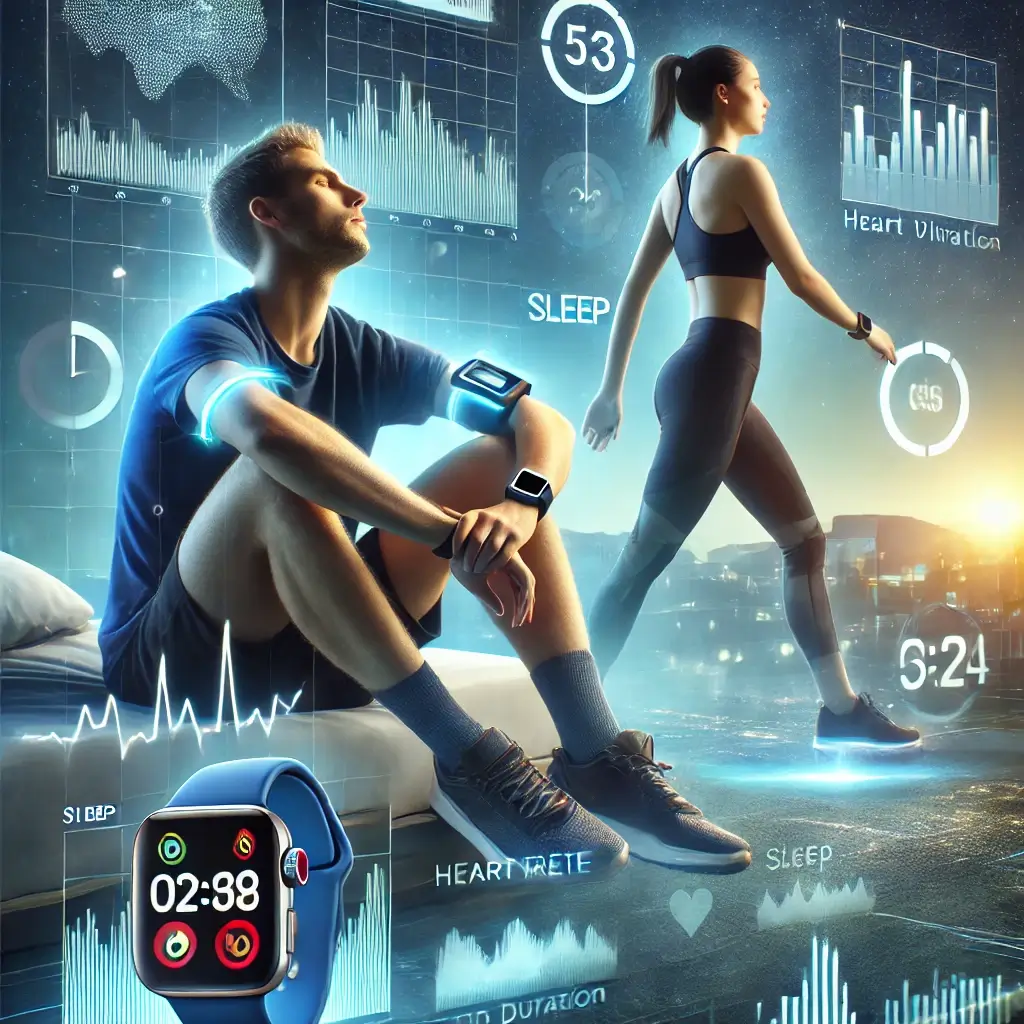Introduction to Sleep and Recovery
Athletes and fitness enthusiasts know that recovery is as vital as training. While workouts strengthen the body, sleep is the critical period when the body repairs itself, building muscle, balancing hormones, and consolidating skills learned during practice. Yet, achieving optimal rest can be elusive, especially in a world filled with stress and distractions.
Wearable Technology for Sleep Tracking
Enter wearable technology. Devices like the Apple Watch and Samsung Galaxy Watch have expanded beyond fitness tracking to delve into the realm of sleep health, providing actionable insights for athletes who want to maximize their recovery. These tools offer a competitive edge, translating sleep data into meaningful information to optimize performance and recovery.
Understanding Sleep’s Impact on Fitness
Sleep is an active process that contributes to the body’s restoration, particularly for athletes:
Physical Repair: Deep sleep is when muscle repair occurs, thanks to a surge in growth hormone levels.
Cognitive Function: REM sleep consolidates motor skills and learning, critical for refining techniques.
Hormonal Balance: Poor sleep disrupts hormones like cortisol and insulin, potentially affecting metabolism and muscle repair.
For athletes aiming to optimize these recovery processes, wearable sleep trackers can highlight trends and identify areas for improvement.
Comparative Analysis of Leading Smartwatches
Both watches are powerful tools for monitoring sleep, but they have distinct features tailored to athletic needs:
Apple Watch for Recovery Monitoring
Tracks respiratory rate during sleep, offering insights into disruptions that may affect recovery.
Integrates seamlessly with the Health app, allowing users to correlate sleep data with workout metrics.
Focuses on trends over time, helping athletes track long-term improvements in sleep patterns.
Samsung Galaxy Watch for Holistic Insights
Blood oxygen monitoring identifies potential interruptions in sleep, such as those caused by sleep apnea.
Offers personalized sleep coaching, helping users address specific recovery needs.
Stress tracking links daytime stress to nighttime recovery, valuable for managing pre-competition anxiety.
Scientific Evidence and Practical Applications
The scientific community has taken an interest in the accuracy of wearable sleep trackers for athletic recovery:
Nature and Science of Sleep (2020): The study found that both Apple and Samsung watches accurately measured sleep duration, a key metric for athletes monitoring recovery. However, limitations in detecting deep sleep suggest that users should treat these results as approximate (Joo et al., 2020).
Sports Performance and Wearable Tech (2021): Emerging research indicates that combining wearable sleep data with other health metrics, such as heart rate variability, can provide a clearer picture of recovery status.
Athletes can use these insights to adjust their training regimens, ensuring rest and recovery are prioritized as much as physical exertion.
Making an Informed Device Selection
Deciding between the Apple Watch and Samsung Galaxy Watch depends on individual priorities:
For Apple Watch Users: Athletes deeply integrated into the Apple ecosystem will benefit from seamless syncing with iPhone apps, such as Fitness+ and the Health app.
For Samsung Galaxy Watch Users: Those seeking a broader range of health metrics, like stress and blood oxygen, may find Samsung’s offerings more compelling.
Battery life also plays a critical role. Samsung’s longer battery life ensures uninterrupted tracking during overnight monitoring, while Apple’s frequent charging requirements may disrupt continuity.
Final Thoughts on Recovery Enhancement
Sleep trackers have transformed how athletes approach recovery, making data-driven decisions possible. Whether it’s through Apple’s intuitive ecosystem or Samsung’s comprehensive metrics, these devices offer valuable insights that can enhance performance and well-being.
However, it’s important to remember that no technology replaces the fundamentals of recovery: a consistent sleep schedule, proper nutrition, and managing stress. Wearables are tools to guide and inform, but the responsibility for optimizing recovery lies in the athlete’s hands.
With the right smartwatch and a commitment to recovery, you can elevate your fitness journey and wake up ready to conquer your goals.
Academic Sources
References
Joo, S. H., Kim, J. H., Park, Y. B., & Jeon, S. Y. (2020). Accuracy of wearable devices in sleep quality measurement. Nature and Science of Sleep, 12, 1031.
He, S., Sun, Y., & Kang, J. (2021). The role of wearable technology in sports performance. Sensors, 21(14), 5678.
